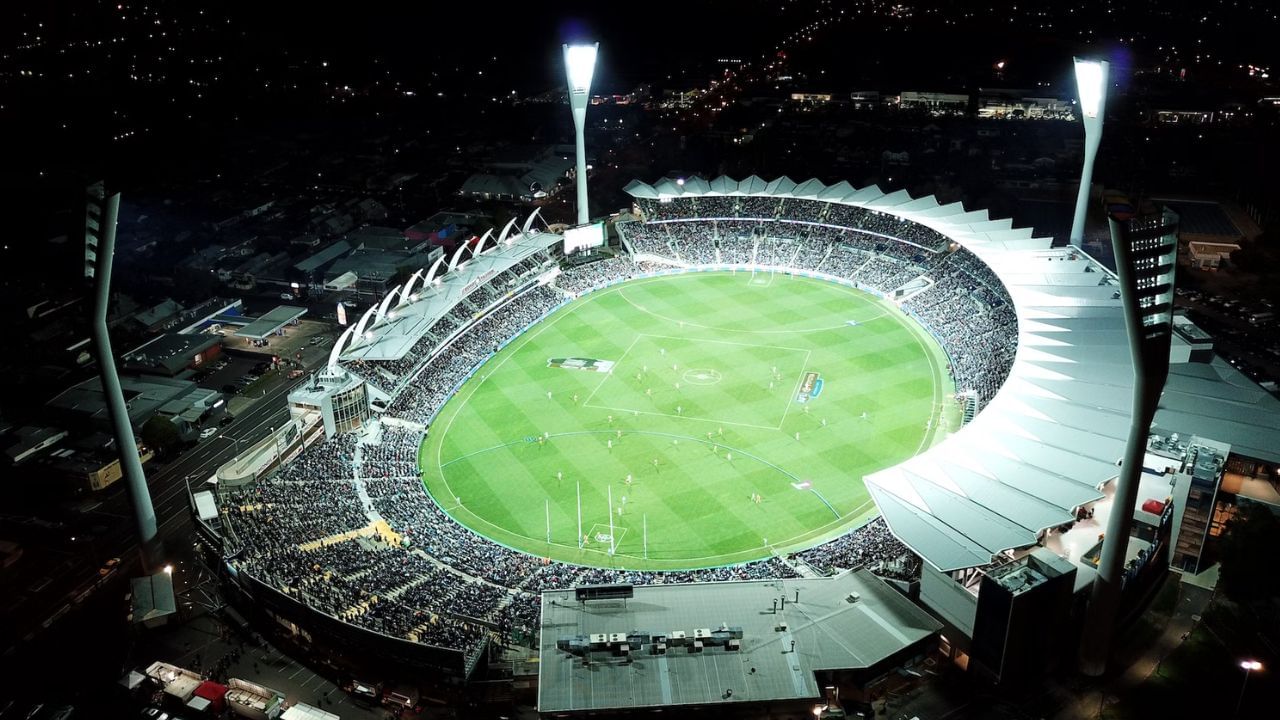Have you ever wondered what truly embodies the culture of Australia? Down under, it’s not just about kangaroos and koalas; it’s also about the “Footy.” Australian Football League, commonly known as AFL, is a cornerstone of Australian culture. In this blog, we’ll take you through the heart-pounding world of AFL and explore how it intertwines with the culture in Australia.
We’ll begin with a brief history of Australian Football, tracing its roots and evolution. Then, we’ll explain the basics of this unique sport, helping you understand the rules and terminology. As the AFL season kicks into high gear, we’ll delve into the excitement of the season and introduce you to the diverse teams competing for glory.
But that’s not all – we’ll also guide you through the exhilarating experience of attending an AFL game, providing a taste of the passion and camaraderie that make this sport an integral part of Australian culture. Get ready to explore the world of Footy, where culture and sport collide down under.
A Brief History Of The Australian Football – AFL Australia
The Australian Football, also known as Aussie Rules, has a unique history that began in Melbourne in the mid-19th century. It’s widely regarded as the first football code with official rules. This game is played on an oval field with 18 players on each side, using an oval-shaped ball to kick, handball, mark, and tackle opponents. It’s fast, physical, and high-scoring, with four posts at each end for scoring.
This sport is loved across Australia, especially in Victoria, South Australia, Western Australia, and Tasmania, where it draws big crowds and passionate fans, contributing significantly to the culture in Australia.
Historical Milestones
- In the 1850s, a group of cricketers, led by Tom Wills, created the game to stay active during the winters.
- They combined elements from various ball games played in England and Ireland, along with inspiration from the Aboriginal game called Marngrook.
- In 1858, the first recorded game took place, and the following year, the Melbourne Football Club established the initial set of rules.
Organisational Developments in AFL Australia
- The game’s popularity led to the formation of the Victorian Football Association (VFA) in 1877, which became the first governing body.
- The sport continued to expand, reaching South Australia in 1860, Queensland in 1866, and other states in subsequent years, leaving an indelible mark on the culture in Australia.
- The Victorian Football League (VFL) emerged in 1896 when six VFA clubs broke away, introducing innovations like finals and professionalism.
- The game’s reach extended internationally, with leagues established in various countries.
Australian Rules Football Basics – AFL Australia
There are certain rules in AFL Australia. These rules help create a fast-paced and dynamic game that’s easy to follow and enjoy which include:
Field and Teams
- The game is played on an oval field with goalposts at each end.
- Each team has 22 players, but only 18 are on the field at any given time.
Game Starts and Restarts
- The game begins with a ruckman throwing the ball into the air. Players from each team try to tap the ball on their side.
- After a goal, the game restarts in the same way as at the beginning.
No Tackling After A Mark
- Once a player marks the ball, they cannot be tackled. They have space to make their next play without pressure.
- If an opponent crosses the mark or tackles, it’s a foul, and the team with the ball moves 15 meters down the field.
Tackling Rules
- Players can tackle opponents to regain possession but only from shoulder height and downward.
- If a player refuses to release the ball while being tackled, the umpire will intervene, and the ball will change possession.
No Pushing From Behind
Players cannot push their opponents from behind, especially during a tackle or while running.
Shepherding
Shepherding (bumping, pushing, or blocking) is allowed to keep opponents away from the ball, but only within five meters of the ball.
Game Structure
The Australian Football League (AFL) consists of four quarters, each lasting 20 minutes. Extra time may be added when the referee calls a time-out.
Scoring
Points are earned by kicking the ball between the behind goalposts (1 point) or between the opposing posts (6 points).
AFL Australia Season
The AFL season is split into two main parts: the home-and-away season and the finals series.
Home-and-Away Season in AFL Australia
- The home-and-away season runs from March to August, covering 23 rounds.
- Each of the 18 teams plays 22 matches, with one week off.
- Teams are ranked on a ladder, based on their wins, losses, draws, and percentage.
Finals Series
- The finals series is a four-week knockout competition held in September.
- The top eight teams from the home-and-away season qualify for the finals.
- The finals system gives the top four teams a second chance to reach the grand final.
- The grand final is the ultimate match, usually held at the Melbourne Cricket Ground.
- The team that wins the grand final is crowned the premiers of the AFL and takes home the premiership cup and flag as trophies.
It’s an exciting structure that keeps fans on the edge of their seats, leading up to the climax of the grand final to determine the AFL’s ultimate champions.
AFL Teams
The Australian Football League (AFL) comprises 18 teams, situated in five of Australia’s six states (Tasmania being the exception). Supporting teams is a significant aspect of Australia’s sporting culture, with individuals having unique motivations for their choices. You may opt for a team based on proximity or perhaps due to your preference for their team colors. Supporting a friend’s team or even cheering for their rival can also add to the enjoyment. Choosing a team to support offers various avenues for enjoyment and camaraderie, all centered around embracing the game and having a fulfilling experience.
Teams by State

Victoria (VIC):
- Melbourne – The Demons
- Collingwood – The Magpies or the Pies
- Geelong – The Cats
- Hawthorn – The Hawks
- St. Kilda – The Saints
- Essendon – The Bombers
- North Melbourne – The Kangaroos
- Western Bulldogs – The Bulldogs
- Richmond – The Tigers
- Carlton – The Blues
Queensland (QLD):
- Gold Coast – The Suns
- Brisbane – The Lions
New South Wales (NSW):
- Sydney – Sydney Swans
- Greater Western Sydney – GWS Giants
Western Australia (WA):
- West Coast – West Coast Eagles
- Fremantle – The Dockers
South Australia (SA):
- Port Adelaide – The Power
- Adelaide – The Crows
Following is the breakdown of the teams along with their home stadium:
| Team | Home Stadium |
| Adelaide Crows | Adelaide Oval |
| Brisbane Lions | The Gabba |
| Carlton Blues | Marvel Stadium |
| Collingwood Magpies | Melbourne Cricket Ground |
| Essendon Bombers | Marvel Stadium |
| Fremantle Dockers | Optus Stadium |
| Geelong Cats | GMHBA Stadium |
| Gold Coast Suns | Metricon Stadium |
| GWS Giants | Giants Stadium |
| Hawthorn Hawks | Melbourne Cricket Ground |
| Melbourne Demons | Melbourne Cricket Ground |
| North Melbourne Kangaroos | Marvel Stadium |
| Port Adelaide Power | Adelaide Oval |
| Richmond Tigers | Melbourne Cricket Ground |
| St Kilda Saints | Marvel Stadium |
| Sydney Swans | Sydney Cricket Ground |
| West Coast Eagles | Optus Stadium |
| Western Bulldogs | Marvel Stadium |
You can easily pick your favourite team based on their location, nickname, or home stadium.
Going To An AFL Australian Match
Once you’ve selected your team, it’s time to attend a match. You can find the game details on the AFL website, including the time and location of your team’s game.
Attending a footy match is a fantastic experience. Additionally, you can spend time with friends and immerse yourself in the sport’s culture. Moreover, footy season runs from March to September, so be sure to dress warmly in your team’s colors with a jumper, scarf, and beanie. Furthermore, for the full Australian experience, try to secure seats near the field, where you can enthusiastically cheer for your favorite team and soak up the vibrant atmosphere of the stadium. Finally, enjoy every moment of supporting your chosen AFL team and being part of this lively sporting culture.
Tip: Don’t miss out on trying a meat pie – it’s a classic footy snack. Be sure to smother it in tomato sauce and have plenty of napkins on hand.
Conclusion
Australian Rules Football is undeniably a vital thread woven into the fabric of Australian culture. From its humble origins in Melbourne to its widespread influence across the country, the AFL has left an indelible mark on Australia’s identity. So, whether you’re donning your team’s colours at the stadium or simply sharing in the enthusiasm of the season, Australian Rules Football is an enduring symbol of Australia’s rich and diverse culture. Hope this blog helps you to gain a clear understanding of AFL and the remarkable craze that makes it a culture in Australia.
FAQs
Q1. What is AFL Football Australia?
Ans: AFL Football Australia is the name of the sport of Australian rules football, which is played by 18 teams in the Australian Football League (AFL), the premier and only fully professional competition of the game.
Q2. How is AFL Football played?
Ans: AFL Football is played on an oval-shaped field with four posts at each end. The game aims to score more points than the opposing team by kicking the ball between the posts. The game is fast-paced, physical, and high-scoring, with 18 players on each side who use a prolate spheroid ball to kick, handball, mark, and tackle their opponents.
Q3. When and where did AFL Football originate?
Ans:
Q4. How can I watch AFL Football online?
Ans: You can watch AFL Football online with a Watch AFL Global Pass, which allows you to see every AFL match live and on-demand plus the 24/7 FOX FOOTY Channel.
Q5. Where can I find the latest AFL Australia news and results?
Ans: You can find the latest AFL news and results on various websites, such as AFL.com.au, FOX SPORTS, and 7NEWS.
Thank you for reading about the “AFL Australia: Unraveling the Essence of Australian Culture.” If you’re interested in exploring more articles on related topics, we recommend checking out the below articles:















0 Comments